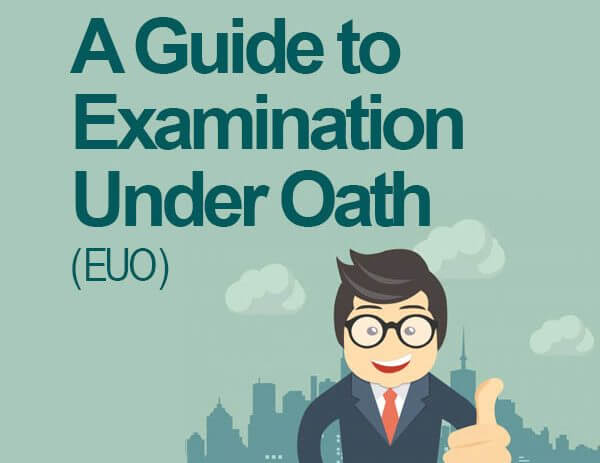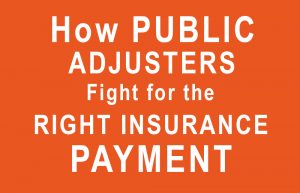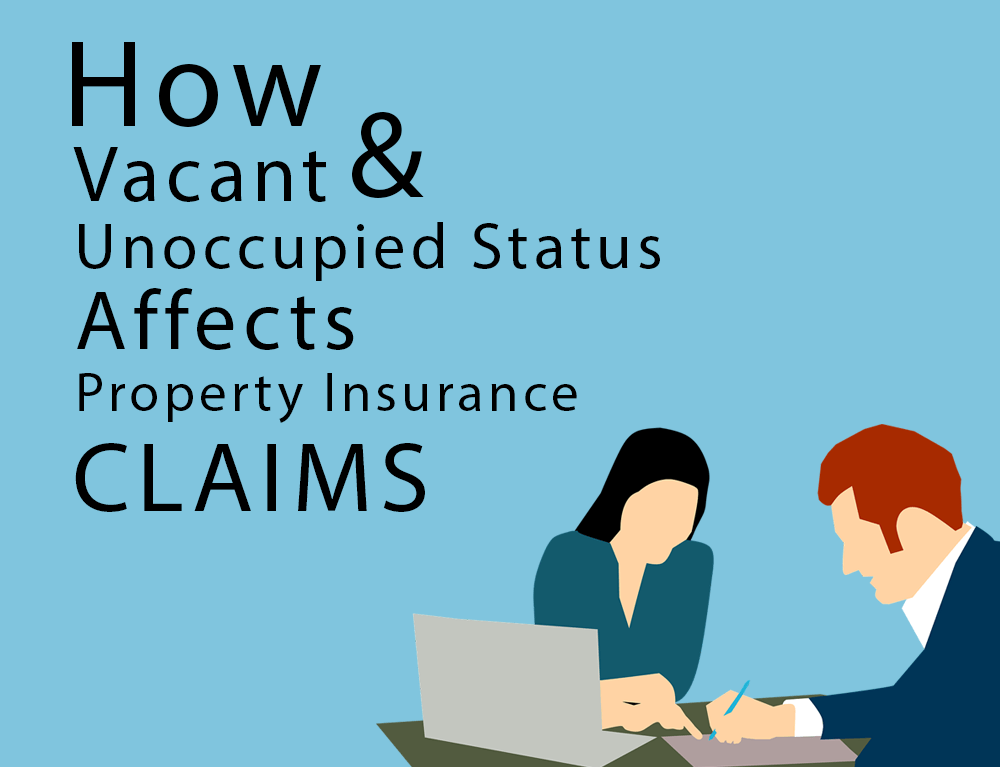
How Vacant and Unoccupied Status Affects Property Insurance Claims

St. Johns Insurance
When it comes to the best home insurance, vacancy and unoccupancy make a big difference. It might sound like the same thing but this will bring different terms when it’s time to file for a claim. Most policies will include vacancy inclusions but not unoccupancy exclusions. Why is it important to know the difference? Well, vacant means the property is totally empty – both of people and belongings. As for unoccupied, the property is only lacking occupants but valuables are left intact. For example, if a family went into a short vacation, the house is unoccupied. If they moved to another home, there’s a chance that the property will be vacant.Insurance claims
For best homeowners insurance, vacant properties will not have any coverage for vandalism, theft, glass breakage, and water damage. Attempted theft isn’t covered too if it happens within 30-60 days after the vacancy. Since these risks are high and there’s no effort to prevent it, the insurance company won’t grant any claim. When it comes to unoccupied properties, everything applies just the same as for occupied policies. The owners are assumed to be returning any time. This looks like a simple difference. But for commercial establishments, vacancy and unoccupancy become trickier. A building or business establishment will fall under vacancy if only less than 31% of its overall space is occupied. If the business space is deemed “vacant” for more than 60 days, commercial insurance coverage for vandalism, theft, water damage, and sprinkler leakage will be lifted. One big disadvantage of having an indirectly vacant property is that the payout is decreased by 15%. This is $1,500 less for damages amounting to $10,000.How to make your property qualify as occupied
If you’re leaving in a different property but you want your other house to be covered, you have to put more valuables inside. There should be cooking wares, utensils, fridge, and basic furniture. It should look like you have the intent to go back and resume living on the property. In the case of extended vacations, say owners staying in a different country for months, the coverage stays intact under unoccupied. If you want to insure your property, regardless if it’s unoccupied or vacant, you have to talk to the right people.Insuring your property
The worst thing that can happen to you is to discover that certain property damages won’t be paid just because you don’t know the difference between vacant and unoccupied. It pays to talk to your insurer so you can ask for endorsements. Some policies can cover both of your properties even if you’re not living in one. Although this would be more expensive, you have peace of mind that everything is insured. Remember, though, that vacant property insurance will be more expensive. Sometimes, it can cost at least one and a half times more than the usual coverage cost of your occupied property. It’s not enough that you have the best home insurance. Make sure that you understand the terms and coverage under different circumstances. This way, you will avoid unexpected out-of-pocket expenses.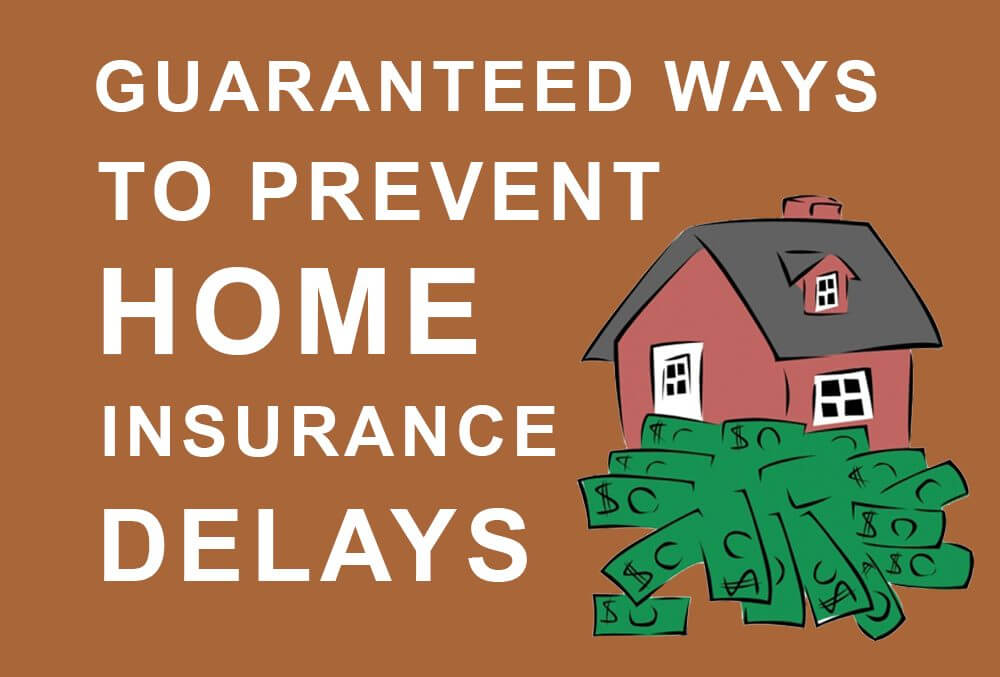
Guaranteed Ways to Prevent Home Insurance Delays
Geico
Home insurance can be a pain to deal with when it’s time to file a claim. The technicalities can stymie the repairs needed for your property. Filing a claim without knowing the right steps to take will only make the process more excruciating. Insurers may deny you a payout just because of your failure to document the damages properly.
Haphazard insurance filing will only result to legal headaches. Always ask for help if you’re not certain of the process. Public adjusters can be your helping hand in times like this. And to prevent further delays on your claim, here are some home insurance tips:
Stay organized
Take time in doing the paperwork. Document the damage by taking pictures, listing the things that you lost, and estimating the claim by assessing the damages. Gather all the receipts that you can find to support your claim. It’s also best to keep an insurance diary where you log all the details of communication with your insurer.
Be on time
Never wait for weeks before you file a claim to your insurer. As soon as the damage occurs, document it and report to the insurance company. Always be transparent and quick in responding to your insurer’s questions and requests. However, never provide any information that you’re not sure of. Haphazard response for the sake of speeding up the claim might backfire on your payout.
Understand your policy
Understanding all the provisions of your policy will prevent errors and delays on the filing. Know what Actual Cash Value is as well as Replacement Cost and Depreciation Cost. Most importantly, know what is covered on your policy. You might be barking on the wrong tree when you file for a claim that’s clearly not included on the coverage.
Hire a contractor
To support your claim, it’s necessary that you hire a contractor to estimate the cost of repairs and replacements. Do this as soon as you can to secure an agreement with the insurer in the fastest way possible. Also, insurance companies doubt cost estimation that’s been done weeks after the damage took place. Lastly, never fall prey on shady settlements. Always ask for home insurance advice tips from experts.
Work with a public adjuster
If you’re not sure what to do when calamity strikes, contact a public adjuster. This person is skilled in handling insurance claims. He will fight to give you the right payout for the damages on your property. Public adjusters can also analyze the policy for you.
Contact a lawyer if need be
In case the claim is going to be large-scale, it’s best to have a lawyer with you. This way, you can dodge any legal issues while getting the best advice. A lawyer and a public adjuster will both work smoothly to speed up the claim. This is one of the insurance tips for homeowners that never fail.
Home insurance is a vital investment. When it’s time to file a claim, you should perform the proper steps to avoid any hiccups. Hiring professionals may cost a fee but it will secure your footing for a decent payout.
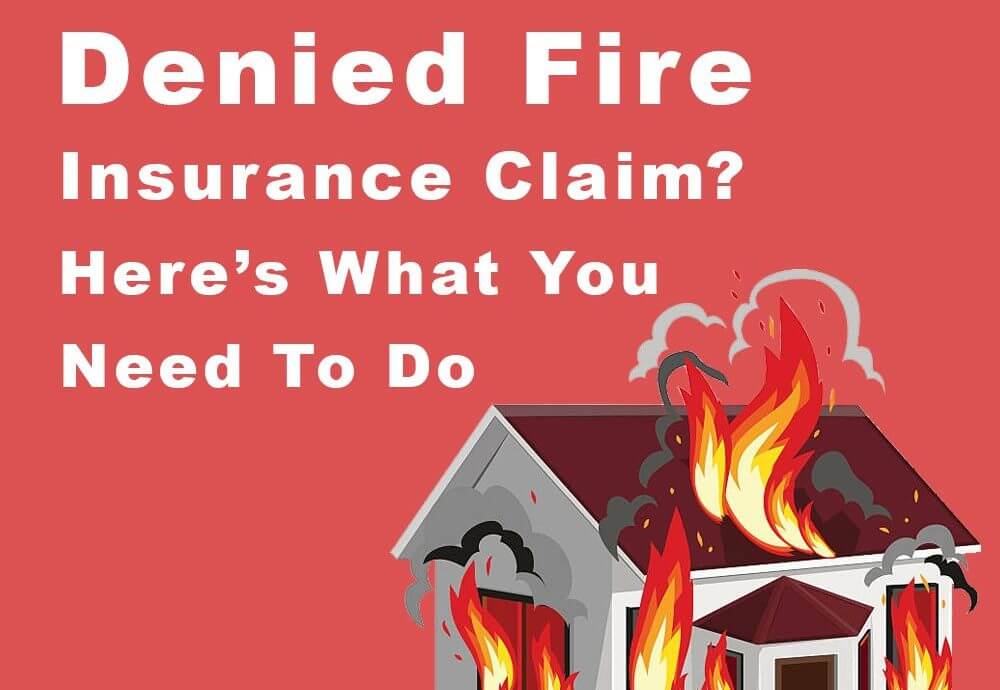
Denied Fire Insurance Claim? Here’s What You Need To Do
A fire insurance claim can take an ugly turn when it gets denied. Aside from the devastating losses, the denial of your claim will leave you with out-of-pocket expenses. There are many reasons why your insurer will deny your claim for fire insurance. However, not all denials are judged properly. It’s your right to re-appeal and demand for another adjuster to look into the matter.
The fire insurance claim process is tricky especially if the insurer is playing games on you. However, don’t let this initial defeat eat your courage away. You have the following steps to take:
Read the denial letter
Once your insurance company decided to deny your claim, they will send you a formal letter. It will include the reasons for such denial. Make sure that your compare the reasons to the inclusion terms on your policy. If you think you’ve been ripped off, it’s time to build your strongest case.
Call your insurer and raise your concerns. Keep a log of every communication you make with the insurer including the matters discussed.
Establishing your solid case
If your insurer proved to be a headache, it’s time to hire a public adjuster. They will help you detail the losses and the policy clause that states the damage should’ve been covered. At this point, you’ll be using your communication log to prove that you’ve exhausted all efforts to get your case reviewed. Supporting documents will also be prepared before you re-communicate with the insurer.
Climb the command ladder if your claim goes unreviewed. Go to the insurer’s supervisor, manager, directors, and so on. This could be a taxing process but worth it if the damages are large-scale. It’s best to hire an attorney and a public adjuster to help you out.
Fire insurance claim tips: Keep documenting every communication. This will be the foundation of your fight to a payout.
Filing a complaint
If everything doesn’t work, the next resort is to file a complaint against your insurance company. The insurance commissioner of your state will be handling the case. This should automatically result in a review of your claim and the evidence that you should’ve been granted the payout.
Remember, though, that filing a complaint should only be done if you’ve exhausted all possible remedies. Legal matters can get really messy.
Here come EUO and threatening letters
When your insurance company demands you to attend an examination under oath, this is a sign of a bigger storm. This legal process spells war and you should seek the advice of an insurance lawyer. The goal here is to reach a fire insurance claims settlement. You should be prepared to present your case. The same goes for smoke damage insurance coverage and other indirect fire damages.
To admit, this stage will be intimidating. But with the help of a public adjuster and a lawyer, it should give you a fighting chance. A fire insurance claim could be demanding, but it’s nothing compared to what perished on the ashes.
A Guide to Examination Under Oath (EUO) and What You Should Do
Homeowners Choice
An Examination Under Oath or EUO is where the insurance company demands the insured to attend a formal proceeding. This will be done in the presence of a court reporter and the lawyer of the insurance company. The goal here is to acquire enough information to assess the filed claim. Though it looks easy, this process is intimidating. A lot of folks loathe EUO as it just increases the stresses brought by their property losses.
The goal here is to make sure that the insured has the opportunity to document all his appeals. On the other hand, it’s also a way of insurance companies to avoid false claims.
Can you refuse examination under oath?
Most of the time, EUO is indicated as a clause on your policy. In short, you’re required to attend when you’re summoned for it. Anyway, you have the choice to dismiss the invitation. You won’t break any law but your claim will likely be denied.
However, EUO insurance terms are also used as a way to stymie the claims. Some companies use this to intimidate the insured so he would just settle on out-of-pocket expenses. Still, homeowners take time to prepare examination under oath statements to nail the claim. If you wish, you can hire a public adjuster to guide you on potential questions. They will also give tips for examination under oath to increase your chance of having your claim paid.
Should you bring an attorney with you?
Although it’s not required, having an attorney with you is a wise move when attending an EUO. Even if you don’t mean it, inconsistencies on your answers will cause the denial of your claim. With a lawyer, you’re going to be a more informed and prepared policyholder.
However, take note that there are some aspects where your lawyer can’t answer for you. You also have to be prepared in terms of your financial history, claims history, credit score, bank statement, etc.
How does a public adjuster help with EUO?
Most of the time, EUO is a process of documenting the losses and ensuring that you’re filing a legitimate claim. With a public adjuster as your wingman, all the losses are properly documented and listed. First, a public adjuster will organize the documents your insurance company asks from your end.
When it comes to EUO, it’s important to rehearse your statement. The public adjuster can act as the representative of the insurance company. He or she will ask possible questions. That way, you’ll be more relaxed when you appear in the formal proceeding.
Most importantly, public adjusters will brief you about the shady tactics insurance companies use to stall the claim. They will help you understand the EUO structure and potential loopholes insurance companies may throw at you.
Once the EUO is done, the public adjuster will help you to get the right payment amount. This way, your claim settlement would be easier. Examination Under Oath could be intimidating, but it’s an essential part of some insurance policies. As the policyholder, it’s your responsibility to comply with the terms of your insurer.
How Insurance Adjusters Helps Theft and Vandalism Cases
According to a 2012 FBI report, at least 1 in every 36 houses in the U.S. got burglarized. In a separate account, theft and vandalism is also a leading offense in most states in the country. Although some cases are minor, there are circumstances that can be really traumatic and expensive for homeowners.
Aside from the hassle, the insurance claim process can stymie work and living of the victims. Not just that. Some claims don’t get paid properly. This is where public adjusters come to the rescue.
The truth about home theft insurance
It’s not always easy to get a fair payout from theft insurance, let alone get approved for it. No matter how long you’ve been with your insurance company, they aren’t always happy to pay you. The truth is that insurers only make money if your claim is lower than the premiums you’re paying for. If the cost goes overboard, they will be losing profit. No business wants that to happen.
A lot of adjusters from some insurance companies are bent to figure out how they can get away with the lowest payout possible. This is the reason why the opinion of public adjusters is indispensable.
Although there are honest insurers, there are also some who will try to slash the price tag. Compared to hurricanes and fire incidents, burglary and vandalism are more complicated to deal with in terms of insurance. On the other hand, we have to give it to the insurance company. A lot of homeowners tried to milk money from their insurers by faking the incident and then filing for vandalism insurance claims.
Why it becomes complicated
Again, this is due to filers who claim for a theft incident that never took place. Many insurance companies developed trust issues. With that, they will give you more roadblocks to overcome before you can get a check. You have to lay out the evidence that the theft or vandalism incident isn’t staged.
The items should be owned by you and you can give specific value to each one. In case of property damages related to the burglary or vandalism, you have to prove that it’s worthy for a payout.
The help of a public adjuster
Once you’ve filed a legitimate claim, a public adjuster can negotiate with the insurance company. This way, you’ll get the right payout for the damages and stolen items.
Proper documentation is the key to seal the proper payment. Public adjusters like the Gold Coast can help you out with this. We will help gather receipts, bank statements, photos, videos, appraisals, and so on. If you’re filing for a car theft insurance claim, adjusters will help you get the right payment for such a valuable item.
Another thing is that some insurance companies use jargons. If you don’t understand it well, you might fall prey to their shady tactics. Public adjusters know this very well.
So if your home or business experienced theft and vandalism, it’s best to ask the help of public adjusters. These people will make the process easier so you can get your life and business back on track.
How Public Adjusters Fight for the Right Insurance Payment
The biggest challenge of filing for an insurance claim is getting the right pay that you deserve. This is where a public adjuster Florida is needed the most. Take note that insurance companies aren’t going to pay you more than what you actually claimed for. At times, the insurer would even pay less if you don’t know how to fight for the right amount. But with a public adjuster defending your claims on the front lines, there’s assurance that you’re getting the pay you deserve.
The rule of thumb when it comes to insurance is that the payment should be enough to restore the property. It should be in a “uniform and consistent” form to say that it’s been fully repaired. If you just let an insurance company-provided adjuster do the checking, there’s a chance that you’ll miss grand bucks.
Should I use a public adjuster? Here’s what you should know:
The initial offer isn’t enough
Most of the time, the first offer the insurance company offers isn’t enough to cover the entire cost of repairs. An untrained eye can’t spot and consider other factors involved in the repair process. So even if you have to pay for public adjuster fees in Florida, hiring one will ensure that you’re getting the right estimate. Public adjusters know that a small detail can result in more dollars of insurance payment.
A repair that matches the property
An insurance company will say that a flood-damaged hardwood floor can be fixed by sanding and drying. But public adjusters would know the truth. Repairs for this kind of damage will require labor fees for moving the furniture and appliances. Also, the actual cost of the original material would be factored in. More often than not, it’s beyond what the private adjuster calculated.
All work factored in
A damaged floor isn’t just a black and white concept. There’s more involved to it than what meets the insurance company’s eyes. For example, if the kitchen floor is soaked, the surrounding cabinets would have to be removed. Since this will be destroyed too, the added cost for repairs would be needed. It could branch out to a host of other expenses depending on the type of flooring.
Vendor inquiry
A Florida public adjuster license makes the representative skilled in inquiring to vendors. They will ask around for the value of the damaged material. If ever the specific cut and design are no longer on the market, it means that the entire floor will be replaced. This is regardless if some spots are intact or not.
Pressing the insurance company
A public adjuster near me is tasked to press the insurance company to pay for the right value. After laying out all the cards, they will fight for your claims. Such bold yet professional move will guarantee that the insurance company won’t skimp on the check.
If you’re filing for a claim, a public adjuster Florida can help you out. The likes of Gold Coast Public Adjusters are ready to represent you on the frontlines of insurance claims.
5 Guaranteed Ways to Get the Right Insurance Claim Payment
Filing for an insurance claim payment process is a big step, getting the right claim is another. A lot of homeowners fall prey on improper estimates and underpaid claims. And to ensure that you won’t end up like this, you might as well read the fine print. Know what you can demand to your insurance company. This way, you will get the accurate payment for your claims.
Be it for fire, flood, hurricanes, and so on, the following tips will help you out:
- Contact your agent – Once the need for an insurance payment arises, review your policy right away. The home insurance claim process can be excruciating if you’re blind to what is covered. Once you’re sure of what you can demand, contact your agent. If you got lost of who is who, contact your bank to know who your insurer is and your insurer will direct you to your agent. This will be the first step to get the home insurance claim check.
- Ask for advance payment – Your insurance company may take weeks to release the check for your claim payment. To avoid the stall on repairs, ask for an advance payment. This will cover the immediate needs for repairs without the urge to shell out your own cash. Such initial funding will cover the clean-up, temporary roof fix, lodging cost, and so on. If you experience a fire, this payment will be useful in securing the property based on the fire department guidelines. Follow these homeowners insurance claims tips and you’re golden.
- Document what you lost – Whatever calamity or tragedy your property has gone into, make sure that you start documenting what you’ve lost. List all the items down, from clothing to your most expensive appliance. Don’t sign any insurance document yet until you’re done with the inventory of the items. You might be fooled to inking a document that states your initial declaration is the full amount to be covered. It will take time to list all your lost possessions.
- Seek the help of family and friends – You don’t have to go through the process of property losses on your own. Ask your friends and family for emotional support. They can also help you out with the inventory process and searching for the actual price of the items. You can also designate a family member to keep track of the expenses being incurred for the repairs. This is so you can file it to the insurance company.
- Hire a public adjuster – If you want to ensure that you’ll get the right payment up to the last cent, it’s best to hire a public adjuster. Usually, public adjuster fees in Florida are affordable enough for homeowners to avail. A public adjuster will help you calculate the actual cost of the damage and what you should claim from your insurance company. Aside from the item as it is, they will also factor in the costs connected to additional repairs.
The insurance claim payment process doesn’t have to be a daunting task. By asking the help of a public adjuster, securing the right payment would be more worthwhile.
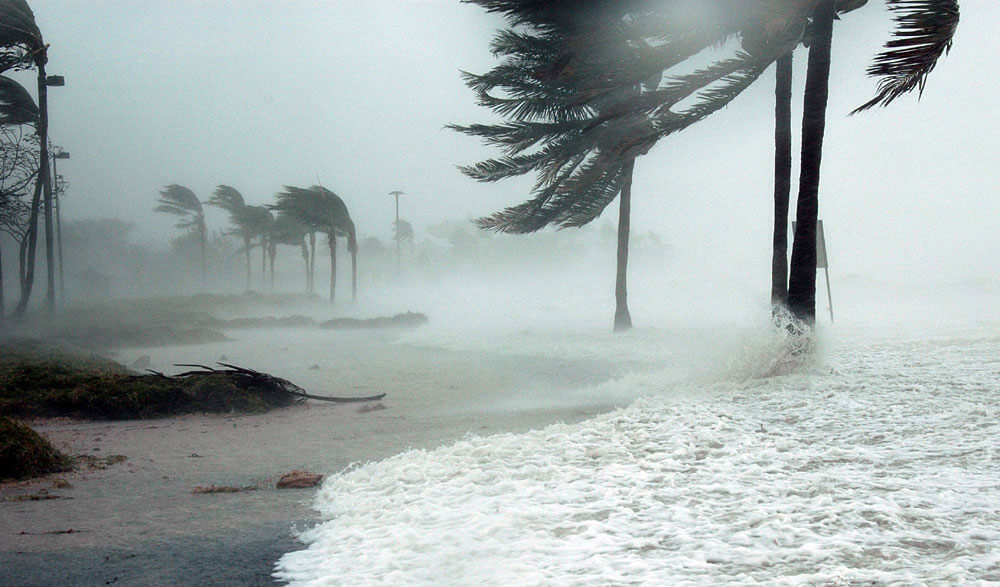
Hurricane Damage Insurance Claims
Just as it is no stranger to water damage, South Florida is also highly susceptible to Hurricane, or Storm damage, given the tropical climate. Though the greatest portion of damage will come from water damage, which can do things such as rot wood, rust steel, and de-laminate plywood, wind damage, mold, collision damage from debris such as trees, and even loss of food by spoilage due to electrical outages are also damages that are, or should be, covered in hurricane insurance. Any property insurance plans in tropical, coastal areas, particularly in South Florida, usually includes a process to submit hurricane damage insurance claims, similar to what you would do for submitting water damage claims:
- Acquire a copy of your insurance contract to ensure that there are no disagreements over the language of your plan.
- Until the insurance company and the claimant have come to an agreement about the scope of the damage, mitigate, don’t repair the water damage.
- Document the damage, take as many pictures as you can, and where possible save samples of damaged drywall or other affected surfaces.
- If your insurance adjuster does not utilize thermal or infrared imaging, or moisture mapping technology then you should consider hiring a public adjuster who does.
- Obtain your own estimates of the repair costs, three independent estimates from contractors are a good start.
- If your claim is not settled within 45 days, you can and must demand an explanation why.
- If your insurance company is unresponsive, consider contacting a public insurance adjuster.
An important aspect to consider is what to do in the case of an absolute emergency forces the individual or family to abandon the home. If the claimaints are forced to evacuate due to the dangerous conditions, they may not have grabbed essentials like toiletries or clothes for school and work, and so may, and should, ask for an advance against the ultimate hurricane insurance claim to hold them over until the claim is finally resolved, and these living costs should be recorded.
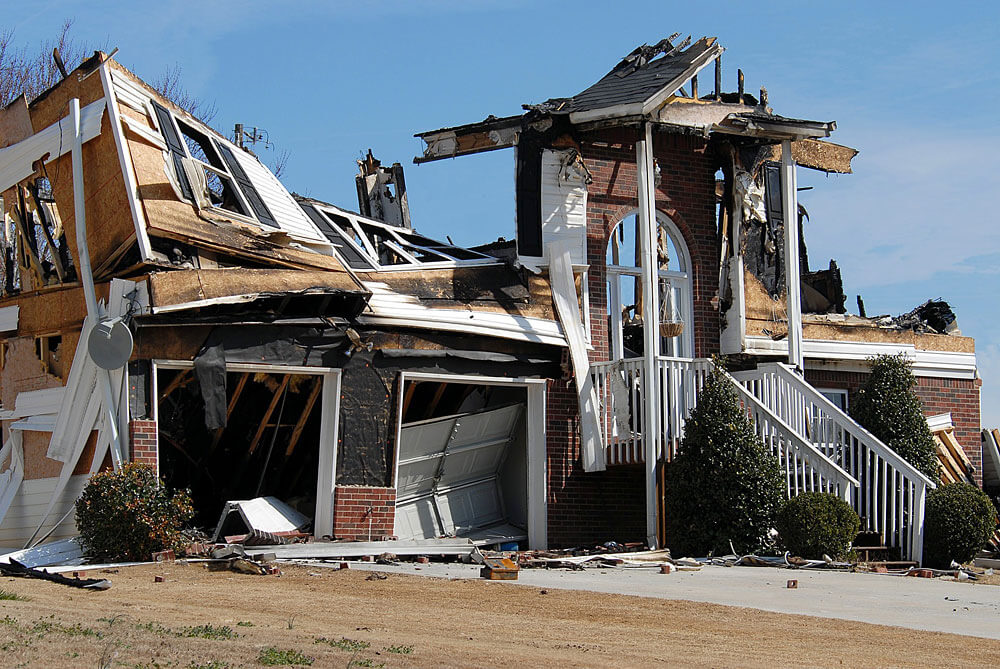
Fire Damage Insurance claims
Property insurance as a concept began as a response to fire damage. Though not the most common damage claims for insurance companies, fire damage is unique in its destructive power and heavy cost. Most commonly house fires begin in the kitchen, but electric wiring if old or faulty can also begin devastating fires in the home or business. Worse still, even if the property is only partially damaged and not completely destroyed, fire damage brings others along with it, including water (from burst or exposed plumbing), smoke, ash, mold, and carbon monoxide poisoning. Fire damage can even affect nearby properties, not just the ones that were burned themselves, as being exposed to such extreme heat (from say, a neighboring property catching fire) can dangerously weaken the structural integrity of the building.
Home or property fires can quickly become lethal, therefore any property insurance plans, must include a complete and comprehensive process to submit and resolve fire damage insurance claims. In fire damage cases in particular, speed of the process is of the essence as the claimant may be left without a home or business. Therefore there are certain concrete steps claimants must take to ensure their due compensation:
- If the claimants are forced to evacuate due to the dangerous conditions, they may not have grabbed essentials like toiletries or clothes for school and work, and so may, and should, ask for an advance against the ultimate fire insurance claim to hold them over until the claim is finally resolved, and these living costs should be recorded
- Once the physical safety of the claimants are assured, an insurance claim should be submitted ASAP and the insurance company pressed to send an adjuster. This claim should include accounts of the fire, injuries (if any) sustained, the remaining condition of the property, and a police report
- Claimants are advised to make as comprehensive a list as soon as they can of all the property that was lost, so as to compile accurate damages costs
- If possible, claimants may be asked to mitigate damages to the property such as boarding up and covering holes in the walls and roof and extinguishing any remaining embers
- Obtain your own estimates of the repair costs, three independent estimates from contractors are a good start
- If your insurance company is unresponsive, consider contacting a public insurance adjuster
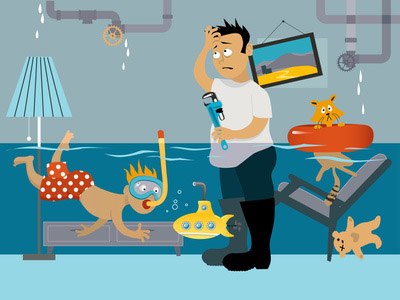
Water Damage Insurance Claims
South Florida may be a tropical paradise, but it is no stranger to water damage. Surprisingly over 50% of most property insurance claims are for water damage, which makes up the greatest single expense for most insurance companies. Water damage can rot wood, rust steel, and de-laminate plywood. Something as small as a water stain, if not treated, can compromise a property’s structure, producing flooding which can cost hundreds of thousands of dollars in damage. This is not even taking into account water damage caused by weather systems such as hurricanes and tropical storms. Worse still, many small problems can precipitate this catastrophic water damage: broken pipes, heater/air conditioning leaks, shower pan leaks, roof leaks, even toilet overflows can cause water damage to a home or business. Even when the source of the water subsides, mold damage typically follows suit. Mold growth can exist after suffering water damage in your property in as little as 48 to 72 hours. Any property insurance plans, particularly in South Florida, must include a complete and comprehensive process to submit water damage insurance claims.
Because water damage is not always easily apparent, claims adjusters sent by insurance companies may underestimate or even completely deny water damage claims. Therefore there are certain concrete steps claimants must take to ensure their due compensation.
- Acquire a copy of your insurance contract to ensure that there are no disagreements over the language of your plan
- Until the insurance company and the claimant have come to an agreement about the scope of the damage, mitigate, don’t repair the water damage
- Document the damage, take as many pictures as you can, and where possible save samples of damaged dry wall or other affected surfaces
- If your insurance adjuster does not utilize thermal or infrared imaging, or moisture mapping technology then you should consider hiring a public adjuster who does
- Obtain your own estimates of the repair costs, three independent estimates from contractors are a good start
- If your claim is not settled within 45 days, you can and must demand an explanation why
- If your insurance company is unresponsive, consider contacting a public insurance adjuster

